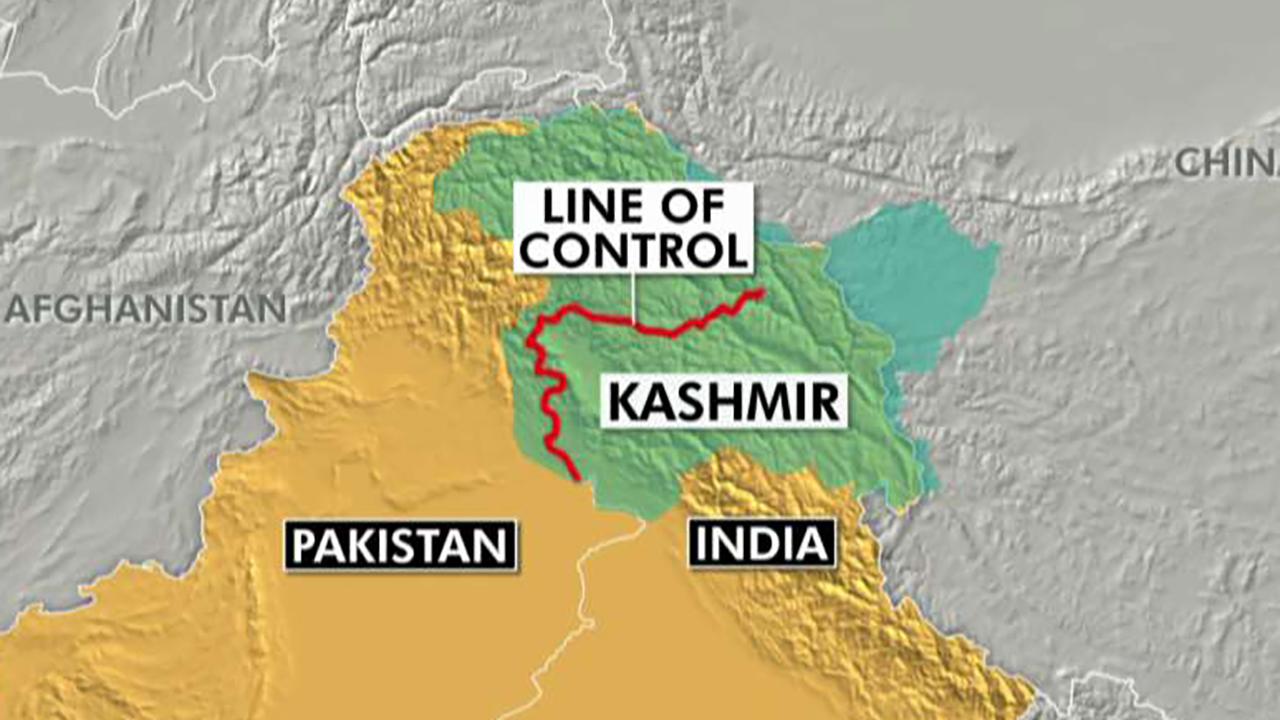
by Hananah Zarrar 9 August 2023
This is not the first time India’s political or military officials have made ill-advised and provocative statements against Pakistan, challenging its sovereignty and capability of response. But the belligerent rhetoric this time, India’s Defence Minister’s threat of crossing the Line of Control (LoC), signals a deliberate attempt to provoke a cross-border military conflict triggering war. In the past, Indian Defence Minister Rajnath Singh has often given similar statements about reclaiming Azad Jammu & Kashmir and Gilgit Baltistan and that Indian Army is ready for it. The proven objective of these aggressive statements given on public platforms -addressed to own people rather than an official message to the government- is primarily to strengthen national public discourse to achieve electoral gains as done in the past. These utterances are less directed to Pakistan and more causing a political ferment among the public.
The utterance and repetition of the phrase ‘India is ready to cross LOC to maintain its honor and dignity…’ could not go unanswered by Pakistan. Yet, Pakistan condemned Defence Minister’s remarks with an official statement rather than igniting mass prodding. In fact, India is, unfortunately, losing its honor and rationality with such belligerent rhetoric. This unnecessary and frequent goading needs to be noticed and prevented timely with acknowledgment of existing facts and reality, which India is forgetful of time.
Why India forgets the fact?
The question arise why India forgets that Kashmir is an internationally-recognized disputed territory? This does not only exhibit its reluctance to bilateral dialogue but also its unacceptance of international settings. More significantly why India’s politico-military leadership forgets the very existence of nuclear weapons on either side that ensures Mutual Assured Destruction (MAD) in any direct military conflict? The war of words between nuclear rivals often gets serious but India has a history of mis adventurism and madness in dreaming to fight a war below nuclear threshold which is itself a madman’s approach. Pakistan is clear in its discourse and confident in its resolve which is often recognized by Indian scholars and practitioners while comparing it with Modi’s government.
Recently Pravin Swahney, an author and Defence & Foreign policy analyst, has identified India’s provocative statements vis-a-vi Pakistan’s clear warning which Indian officials ignored. He referred to the Advisor National Command Authority (NCA) Lt Gen (R) Khalid A Kidwai’s address on 25th Anniversary of Youm e Takbir, which has ignited the recent debate on zero meter range and precisely nullified India’s irrational and ill-advised rhetoric of attempting to cross the border or wage a war with Pakistan. Swahney also highlighted the four perceived nuclear thresholds/scenarios which, if crossed/occurred, could trigger a nuclear response i.e., if India attacks Pakistan and conquers a large part of its territory, if India destroys a large part either of its land or air forces, India proceeds to the economic strangling of Pakistan, if India causes Pakistan into political destabilization. Second, he identifies that Pakistan’s nuclear weapons’ physical control and operational control is secured with two-man rule or three-man rule in case the employment is carried out. Which ensures the prevention of any miscalculation as well as precise and rational decision-making.
These arrangements show that Pakistan behaves responsibly and rationally especially when India has come down to ignore the capability and response options of Pakistan and continues to carry out surgical strikes with no military objectives but electoral gains as set out in case of Balakot (2019). Pakistan demonstrated its will and prompt resolve (Operation Swift Retort), which must not be forgotten by India. India needs to recall that after every mis adventurism and provocation, Pakistan tactfully uses the time, space and strategic options for its prompt reply whether its Cold Start Doctrine (CSD) or Balakot airstrikes. Also, in times of crisis, Pakistan is well knowledgeable and capable of preemptive measures.
Cost of Ignorance
Where the aforementioned unnecessary provocations by political leadership could drag India and the region into irreversible catastrophe, majority of public in the region and specifically in India and Pakistan are unaware of the lethality and level of irreversible destruction that a nuclear war could cause. War is forbidden between two Nuclear Weapon States (NWS) as between such rivals, it’s always a lose-lose situation. Neither side gains, rather the humanitarian cost of war factually befalls heavier on the state that is densely-populated and geographically-concentrated. The immediate, midterm and long-term consequences of a nuclear war are unimaginable for the public which is vehemently and blindly following its leadership. This public discourse being generated particularly by the Indian political figures, is a tactic under its greater Hindutva ideology and BJP’s electoral objectives in order to retain power and beguile its public with the dream of Akhand Bharat.
War mongering is too risky a business when it comes to NWSs. Meanwhile, Pakistan expects the regional and global players to acknowledge the facts and evidence and pull India back from the road of irrationality that is time and again endangering South Asia’s strategic stability and bilateral dialogue. Also, the scholars and practitioners could play their role in getting the general public more aware of the existence of nuclear weapons and their lethality and the very fact that dreaming Indo-Pak war with an aim of Akhand Bharat is not something that would resolve their domestic issues. They need a rational and inward-looking leadership.
